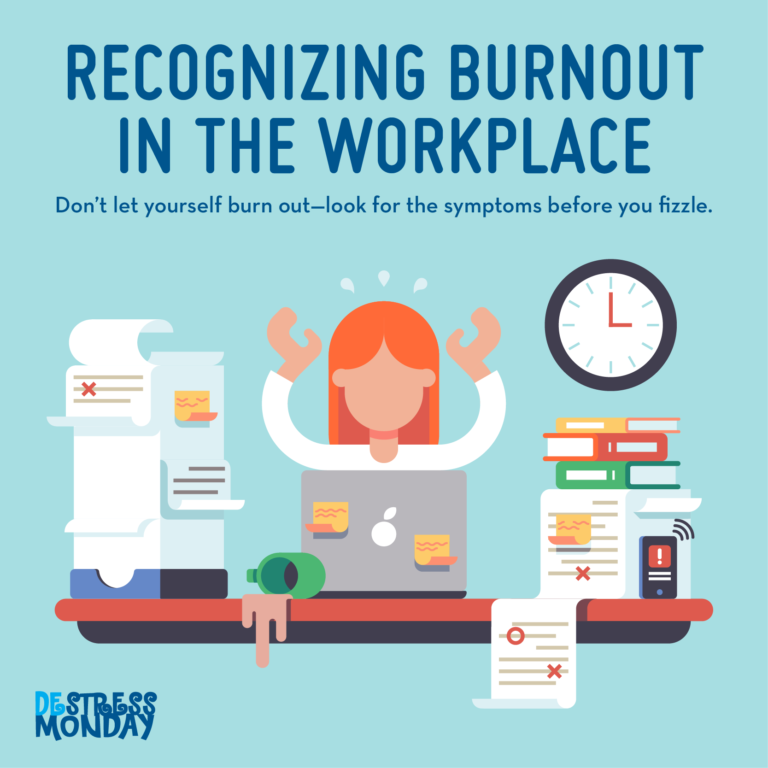Recognizing Burnout in the Workplace
There’s nothing wrong with wanting to be a great person to work with. Being a reliable member of a team who is always ready to take on any project at a moment’s notice is one way to give your professional career credibility and momentum. However, there is such a thing as burning out, and that only leads to less productivity. When you get back to the grind this Monday, make sure it isn’t grinding you down.
Now that so much of our technology is mobile – smartphones, tablets, slim laptops – it’s easy to take our work anywhere. But even self-proclaimed workaholics need to draw the line. Workplace stress can take a serious toll on your physical and mental health. Erratic schedules may have a negative effect on eating habits, which can result in weight gain and cholesterol problems. High levels of stress can also affect sleep and raise blood pressure; in extreme cases, stress may increase the risk of heart disease. When it comes to mental health, many problems come into play. Burnout may increase feelings of negativity and lead to depression and anxiety. All of this would knock anyone off their game, even the most devoted worker.
The trick is to catch yourself before you burn out and manage your symptoms and stress. Here are the symptoms to be on the lookout for:
- Feeling drained both physically and emotionally
- Disruption in sleep
- Constant low-grade illnesses like nausea or colds
- Negative or cynical feelings towards coworkers, paranoia
Keep in mind that a rough day here and there is a normal part of your job. But when you start dreading going to work or you feel like you can’t “leave work at the office,” it’s time to take action and take care of yourself.
Take breaks. You have break times. Always take them. Take short breaks throughout the day to get away from your desk or a project for a little while. You’re allowed to walk around a little bit before revisiting your work with fresher eyes.
Take a breath. Deep breathing for a few minutes is a subtle but effective way to calm down your nervous system and clear your head for a little while. There are plenty of exercises you can do for a minute at your desk as well as visual aids to guide your breathing.
Get a life. Work-life balance is an important part of avoiding burnout. Give yourself something to look forward to outside of work, like a hobby or activity. A great way to reduce stress is a good workout, which can serve as an outlet for frustration that also occupies your mind.
Get a mentor or work buddy. If you need to bring in another perspective, find someone at work who can help you deal with your feelings. Someone in your department may know exactly what you’re going through; someone more experienced will have knowledge about how to work through it. Don’t be afraid to reach out to a colleague who could be familiar with your situation. After all, you’re on the same team.
The best way to be the strongest member of your team is to keep yourself steady and ready. If you feel yourself getting frazzled this Monday, take a moment to check in with yourself and stop burnout as soon as you smell smoke.
